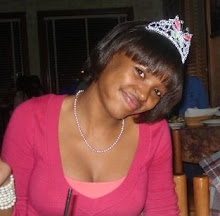"The Eolian Harp"
When I listened to the audio clip of the eolian harp on Dr. Glance's podcast, I automatically thought that it sounded eerie. I think it was because I expected it to sound like the typical harp that I'm accustomed to, so when I heard this actual type, it sounded almost gloomy and made me think of bad things to come. With that being said, I tried to relate that to the poem when I read it. During some of the first half or so of the poem Caoleridge relates himself to the "Footless and wild... birds of Paradise" (325). These birds, being footless, never stay in one place, they are free to roam as the please, always with their heads in the clouds, forever in flight, forever free. Coleridge seems to talk about how great it is to be one of these birds, speaking of light and sound, "Fairy-Land" and flowers, Melodies and music (325). It isn't until after he mentions his wife in the poem that he comes down to earth. With her "Darts," it's almost as if the woman shoots him down from the sky with a single look (326). Only then does he talk about how important religion is as a person. And by not addressing the birds of Paradise, he pretty much completely rejects them. All that I can think that this might mean, in relation to the sound of the eolian harp, is that our reality isn't quite as pleasent as we would expect for it to be. No matter how the wind blows, a sound will be created in the harp that we either adore or just tolerate, but either way, we have to deal with it.
"The Rime of the Ancient Mariner" was definitely a tale that had a lot of unexpected and surely unrealistic events take place, but it makes for a nice story. In an effort to find out the significance of the albatross, I kept finding that the general understanding of the metaphor behind it relates directly to this very poem! So, I figured I would just gain my understanding of the way in which Coleridge meant for the albatross to be portrayed. It is very clearly a sign of "good omen" as described by Coleridge in his side note on page 328, but it is also marked as a "pious bird" in that same side note. So when the mariner kills the bird and is thus cursed because of it, his crew or shipmates make him wear the dead Albatross around his neck. "Instead of the cross, the Albatross/ About my neck was hung" (330). Because Coleridge mentions how the cross would normally be worn around the neck, but instead the mariner muct wear the dead Albatross, shows that the Albatross, for the mariner atleast, has in a way become his savior. Just as many Christians may wear a cross to symbolize that they follow the teachings of Christ and appreciate him for what he has done, the mariner must pay his respect to the Albatross. In fact, the mariner is so controlled by the Albatross that it is not until he completely appreciates life around him and is able to pray that the Albatross falls from his neck (333).
Tuesday, June 9, 2009
Subscribe to:
Post Comments (Atom)

Jalisa,
ReplyDeleteGood job in your discussion of Coleridge's "Eolian Harp," with some very effective analysis of specific passages and words (like the word "Darts"). Your remarks on the Rime of the Ancient Mariner are OK, too, but I think your post would have been even more successful had you focused on one or the other of these two poems, and maybe written a separate post on each one. I would like to see you dig deeper and go into more detail on a single text, rather than providing two medium length paragraphs on two different texts, with no connection between them.
Wow, everytime I read a classmate blogs on the Rime of the Ancient Mariner it makes me want to go back and read it again. I guess no same reader have the same views on what the an author/writer is trying to say. Thanx for giving me a different insight and deeper understanding about this reading and the Elopian Harp.
ReplyDelete